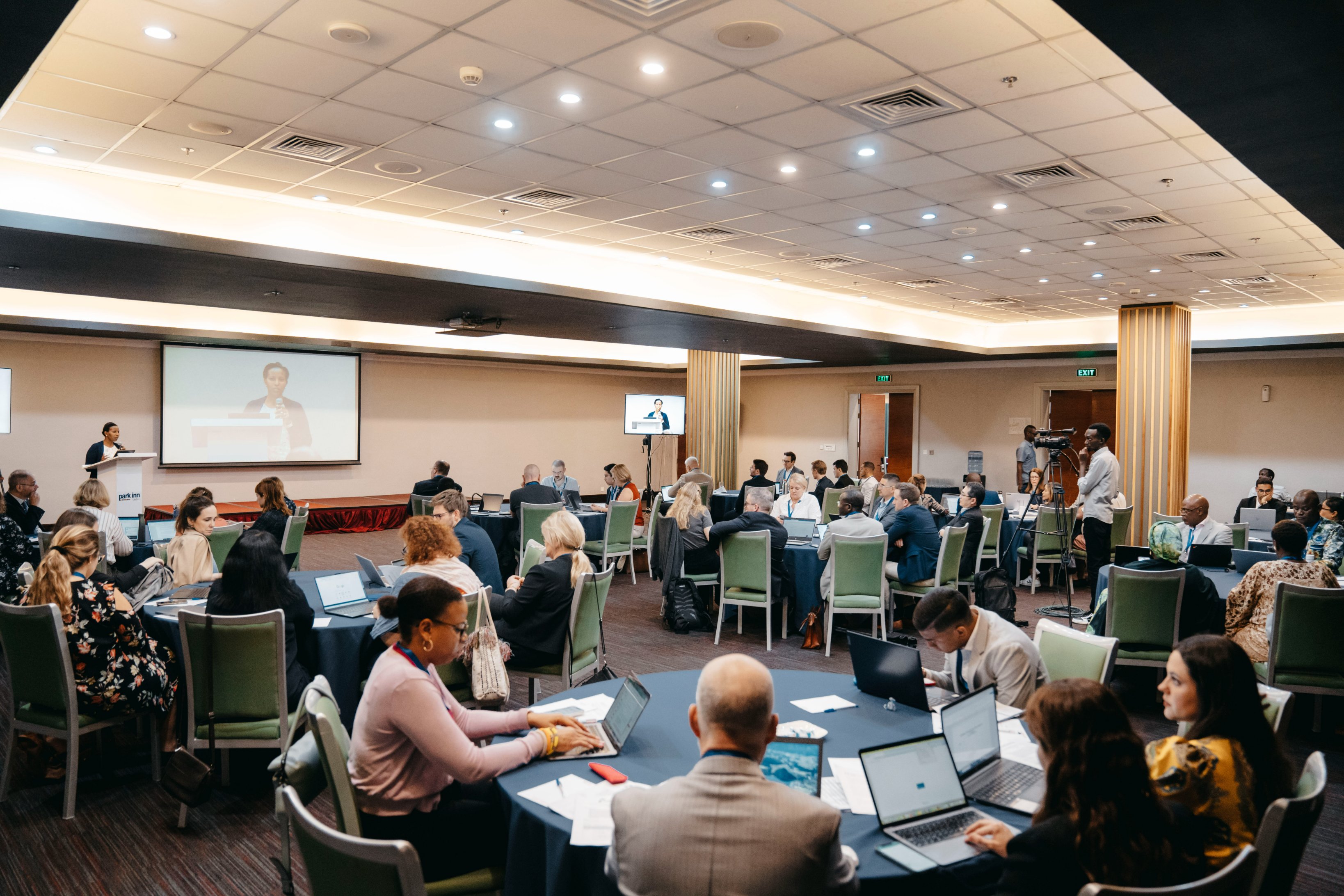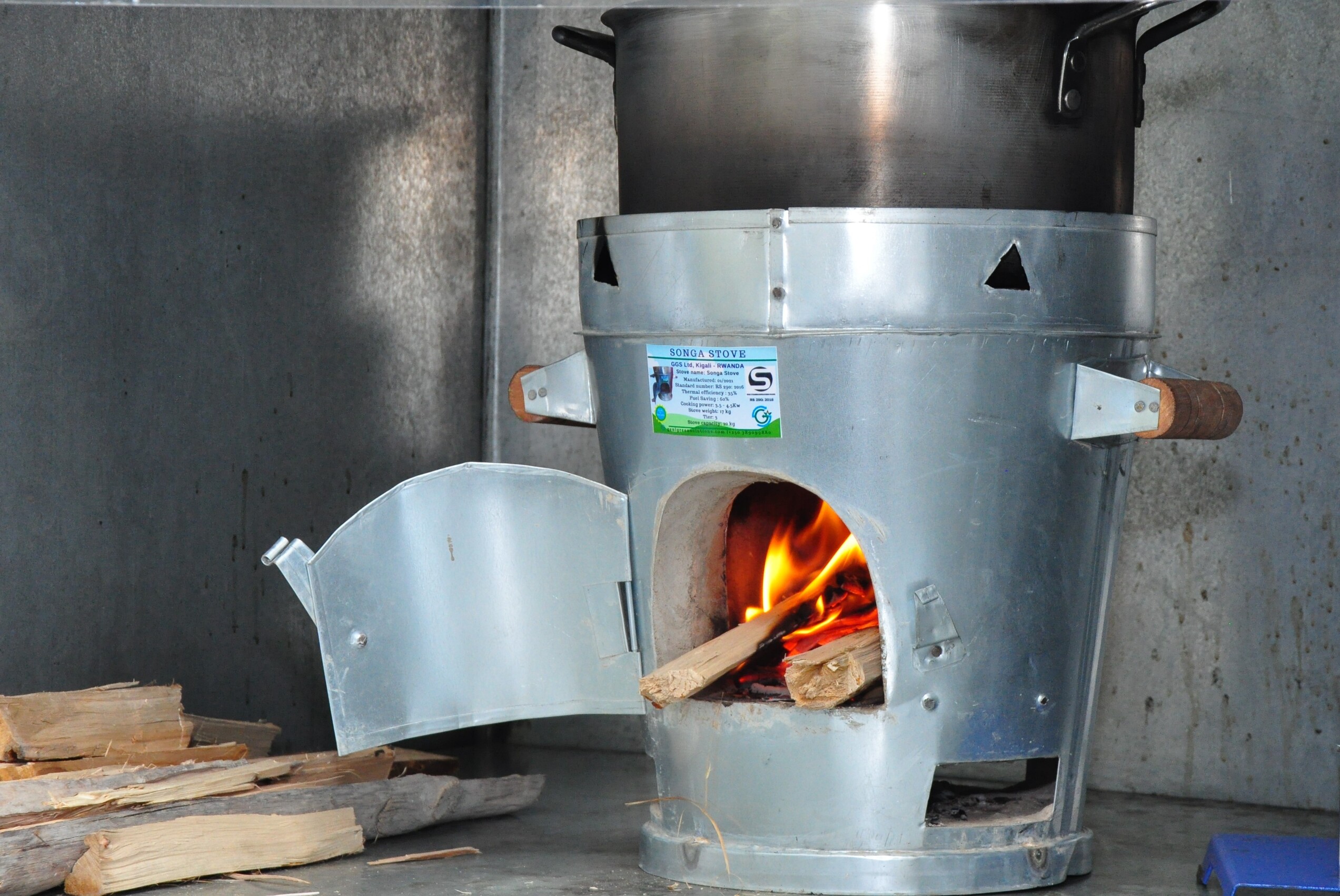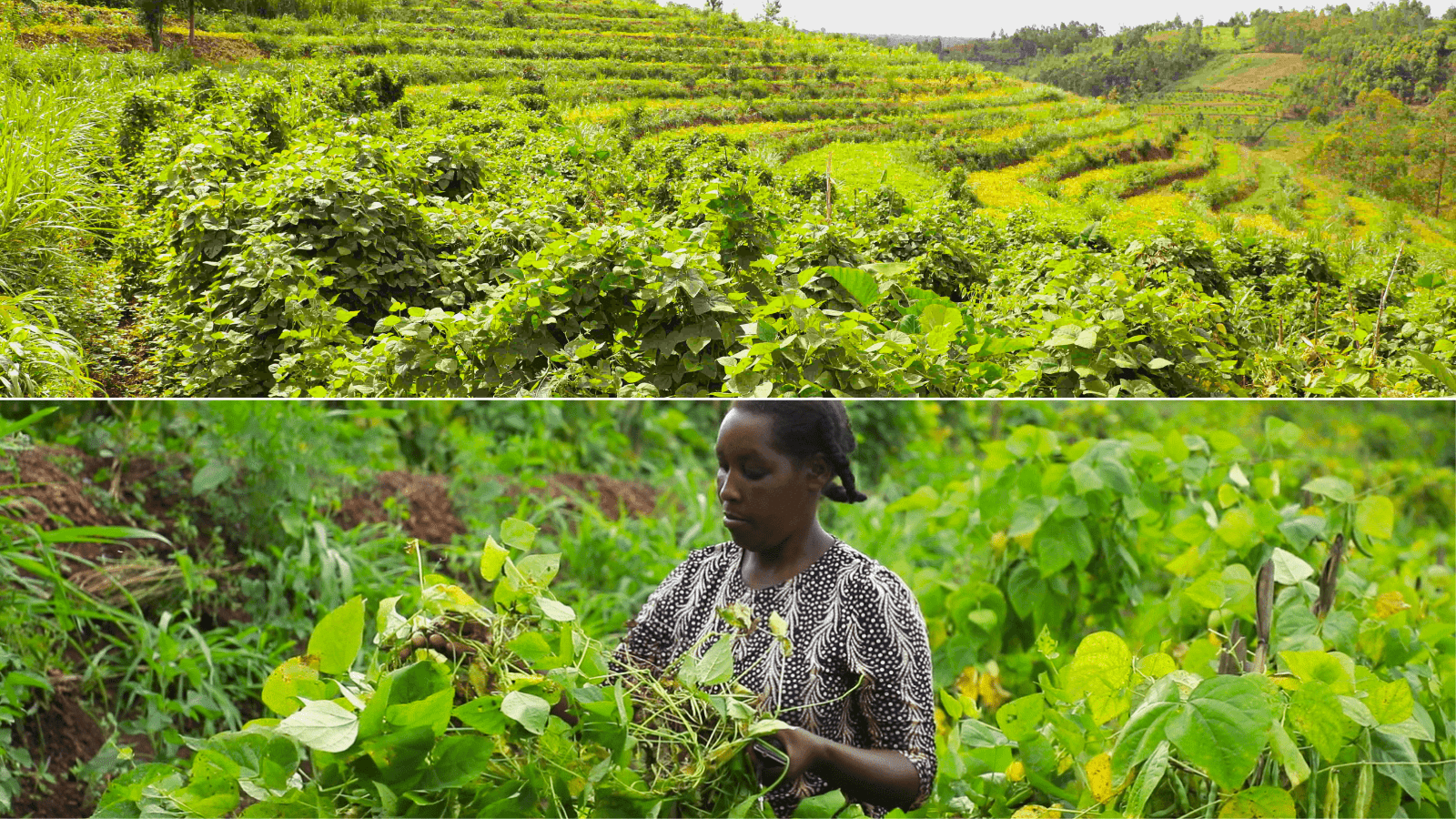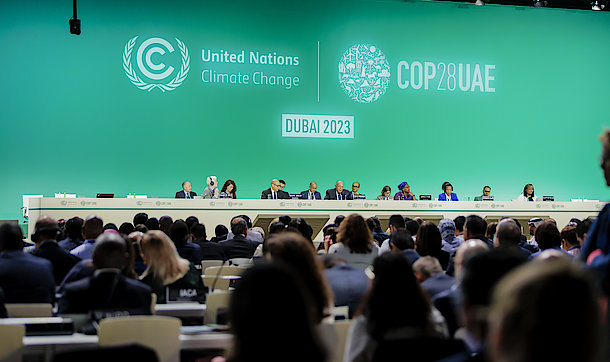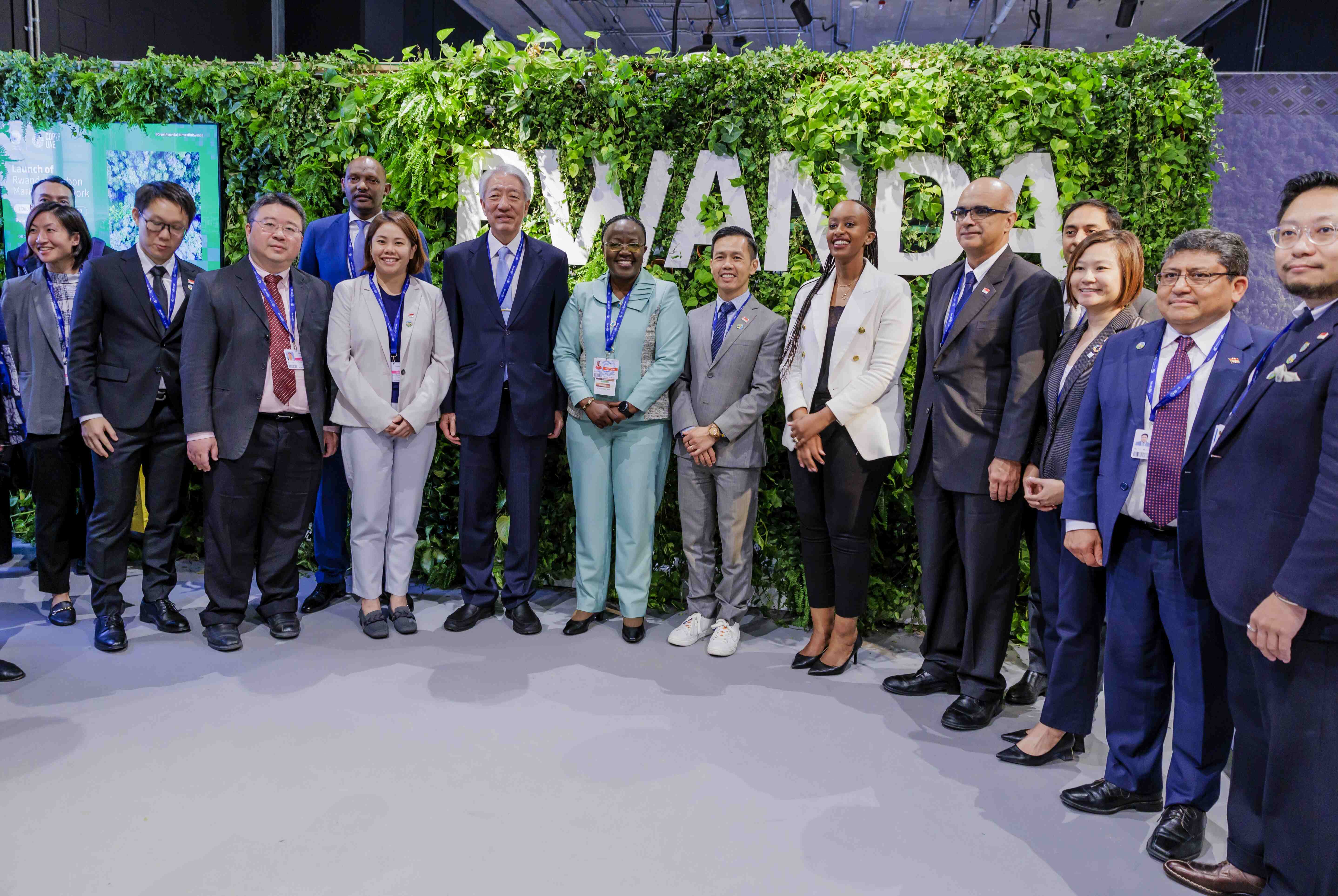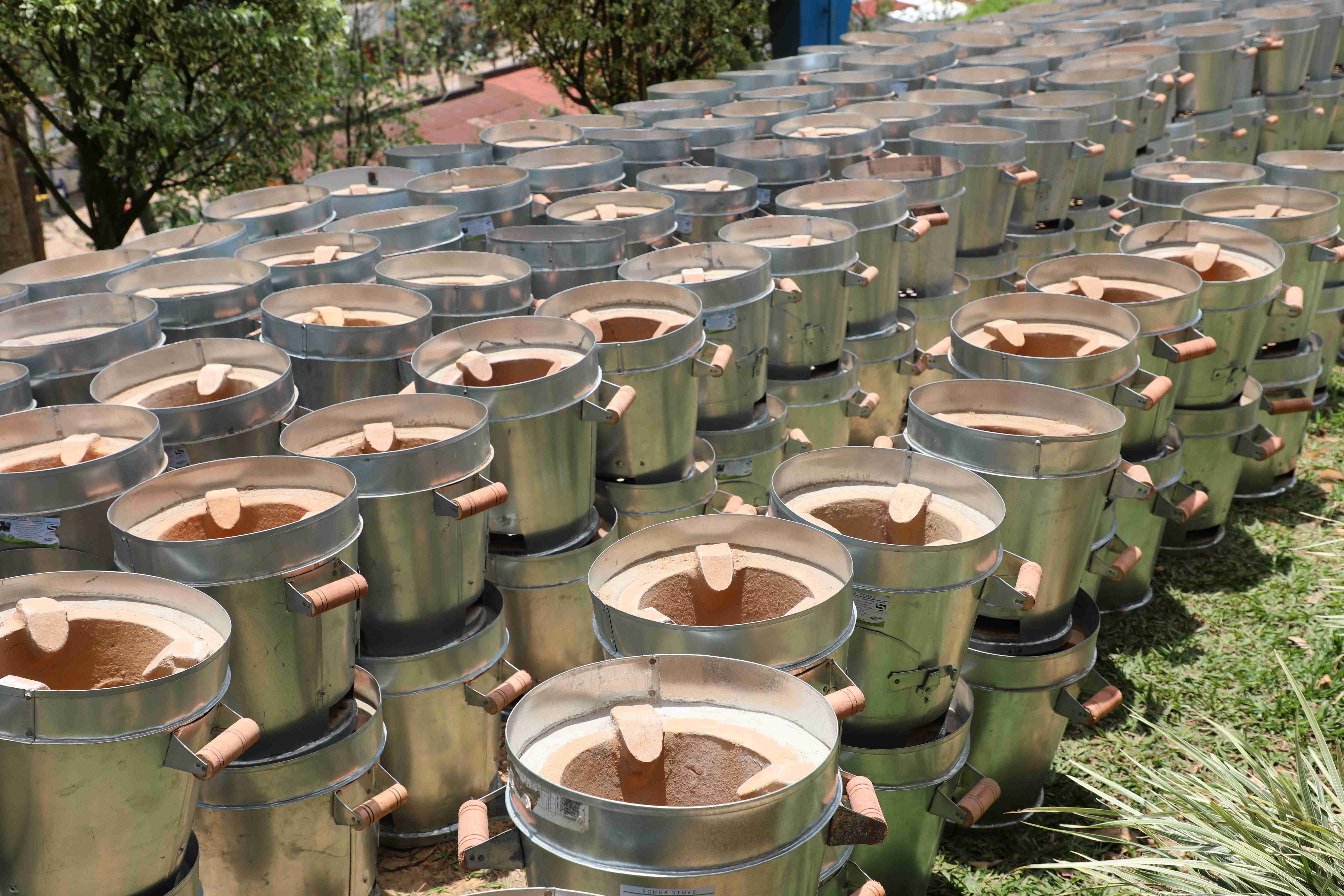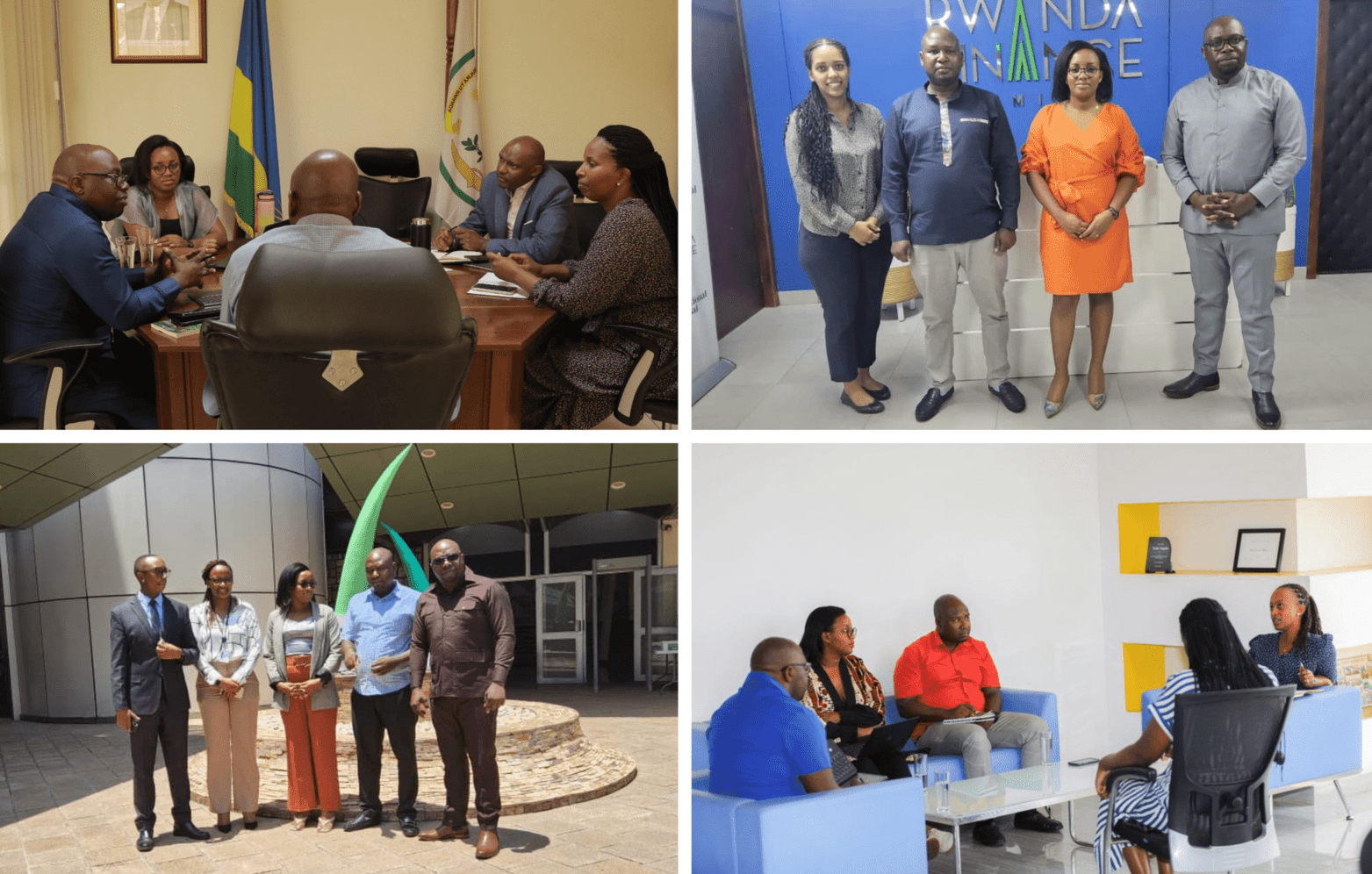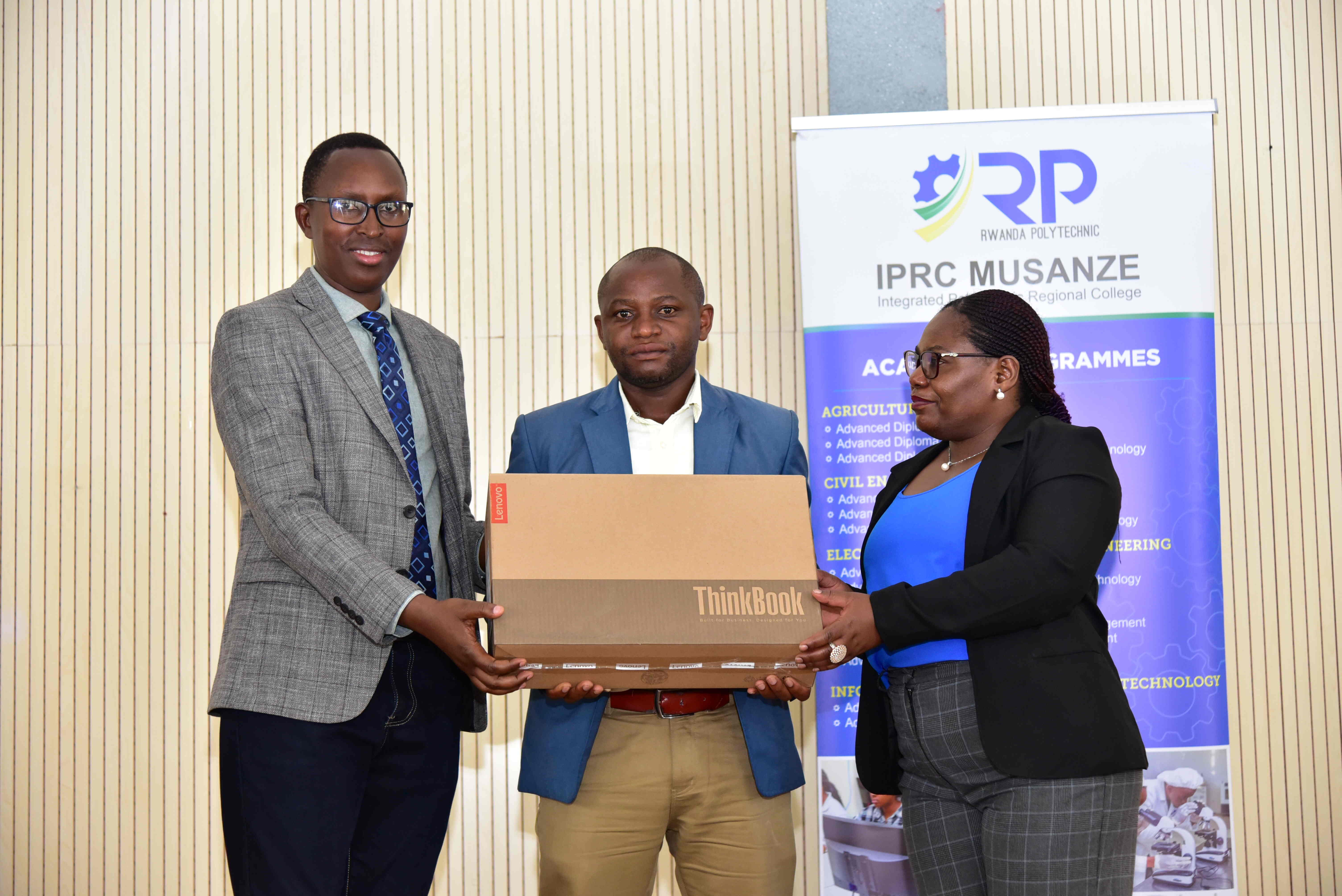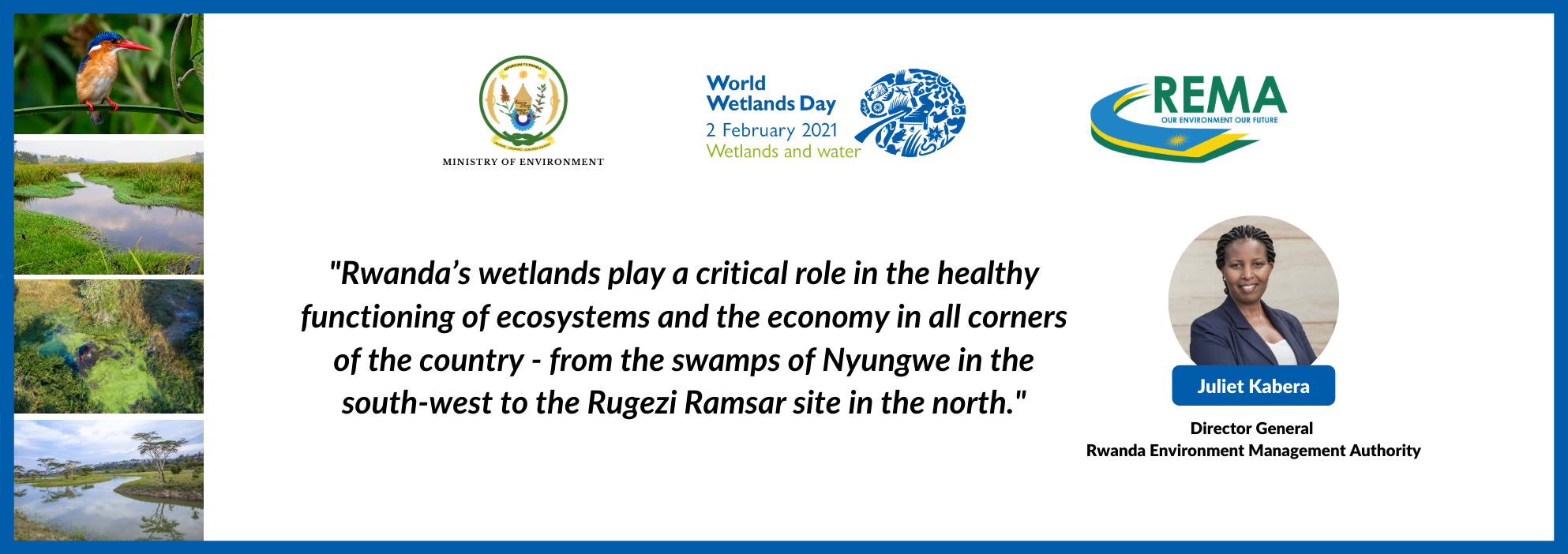
Remarks by Director General Juliet Kabera on the World Wetlands Day
- Minister of Environment
- Representatives of government agencies and our valued partners
- Distinguished ladies and gentlemen
- Friends of the environment
Good morning and greetings from my home in Kigali! Mwaramutse nzeza!
I would like to thank you for joining this special celebration of World Wetlands Day, despite the challenging times we are in. We are grateful that you have taken time out of your busy schedules and homeschooling responsibilities to be with us.
Today we are joined by a number of special guests who will share their expertise in wetlands conservation, water resources management, nature based solutions and catchment planning. We will hear from private sector operators and the City of Kigali on best practice urban planning. I would also like to thank Minister Mujawamariya for joining us as the Guest of Honour and Lilliane Mupende from GGGI for moderating the discussions.
Today wetlands make up 10.6% of Rwanda’s territory with approximately 915 wetlands inventoried across the country. Of these, 38 wetlands - representing about 20% of the total area - are fully protected. About 74% have provisions for conditional use and 6% unconditional use. In total, around 53% of wetlands have been converted to agriculture while 41% remain covered by natural vegetation.
Rwanda’s wetlands play a critical role in the healthy functioning of ecosystems and the economy in all corners of the country - from the swamps of Nyungwe in the south-west to the Rugezi Ramsar site in the north. This is because wetlands deliver a wide range of services vital for human well-being - from flood mitigation, water storage and purification to carbon storage and fertile land for agriculture. Our task is to preserve these natural functions so they can continue to deliver the services we rely on.
It might seem obvious, but wetlands need a lot of water to fulfil these functions. In a country like Rwanda, with typically high average annual rainfall, we’re fortunate to have the right conditions for wetlands to thrive. But we are facing a number of challenges that are putting the health of wetlands at risk.
The extraction of water and its inefficient use in commercial operations, soil erosion, unsustainable fertilizer and pesticide use as well as illegal mining and infrastructure development are all threatening wetlands. As policy makers, practitioners, private sector operators, civil society and citizens, our task is to stand up for wetlands and put in place simple but effective mechanisms that address these issues.
In recent years, strong political leadership and a growing awareness of the importance of wetlands has resulted in increased community support for wetland conservation and rehabilitation. This is especially true in the City of Kigali where residents have led the charge for more green space and public recreational facilities. We are proud to be working with the city authorities and our partners including the Global Environment Facility and the World Bank to green the urban landscape with wetlands at the heart of this effort.
Achieving the goals we have set for wetland protection and restoration requires a multi-sectoral approach. That’s why I am so pleased we have contributors from a wide range of backgrounds joining today’s event. I encourage participants to engage in today’s discussions with questions and feedback, and contribution throught the discussions.
I wish you all a very happy World Wetlands Day.
It is now my pleasure to invite Minister of Environment, Dr Jeanne d’Arc Mujawamariya, to deliver her remarks as Guest of Honour.
Thank you for your kind attention.
Topics
More posts
Rwanda hosts a two-day workshop for Negotiators of the High Ambition Coalition to End Plastic Pollution
Rwanda has from 14th to 16th February hosted a two-day workshop for negotiators of the High Ambition Coalition to End Plastic Pollution (HAC). The…
LDCF3 Project’s Improved Cookstoves: A Dual Solution for Climate Change and Human Health
In a ground-breaking move towards sustainable living, the Rwanda Environment Management Authority (REMA) is making significant strides in the fight…
From reluctance to acceptance: The LDCF3 Project beneficiaries embraces terraces for agricultural transformation
The beneficiaries of the Ecosystem/Landscape Approach to Climate Proof the Rural Settlement Programme of Rwanda, also known as LDCF3 Project, who…
Rwanda welcomes historic COP28 decision to transition away from fossil fuels
The Government of Rwanda has welcomed the ground-breaking decision made at the 28th Conference of the Parties (COP28) to the United Nations Framework…
Rwanda launches Carbon Market Framework to advance Climate Action for a Sustainable Future
Rwanda has today launched its National Carbon Market Framework in a significant stride towards a greener and more sustainable future. The framework…
Over 45 professionals complete a capacity-building program in climate change analysis and reporting
Kigali, 17 November, 2023- Kigali, REMA, in collaboration with the African Institute for Mathematical Sciences in Rwanda(AIMS_Rwanda), celebrated the…
REMA’s LDCF3 Project distributes 5,000 improved cookstoves to beneficiaries to tackle climate change
The Rwanda Environment Management Authority distributes 5,000 improved cookstoves to beneficiaries of the Landscape Restoration Approach to Climate…
BIOFIN’s Technical Advisor on Environmental Finance visits Rwanda to foster stakeholder engagement
The Biodiversity Finance Initiative (BIOFIN)’s Technical Advisor on Environmental Finance for Africa, Mr. Bruno Mweemba recently visited Rwanda from…
World Ozone Day: REMA recognizes students and lecturers with technologies and eco-friendly cooling solutions
Rwanda in September 2023 joined the rest of the world to mark the World Ozone Day with the theme “Montreal Protocol: Fixing the Ozone layer and…
